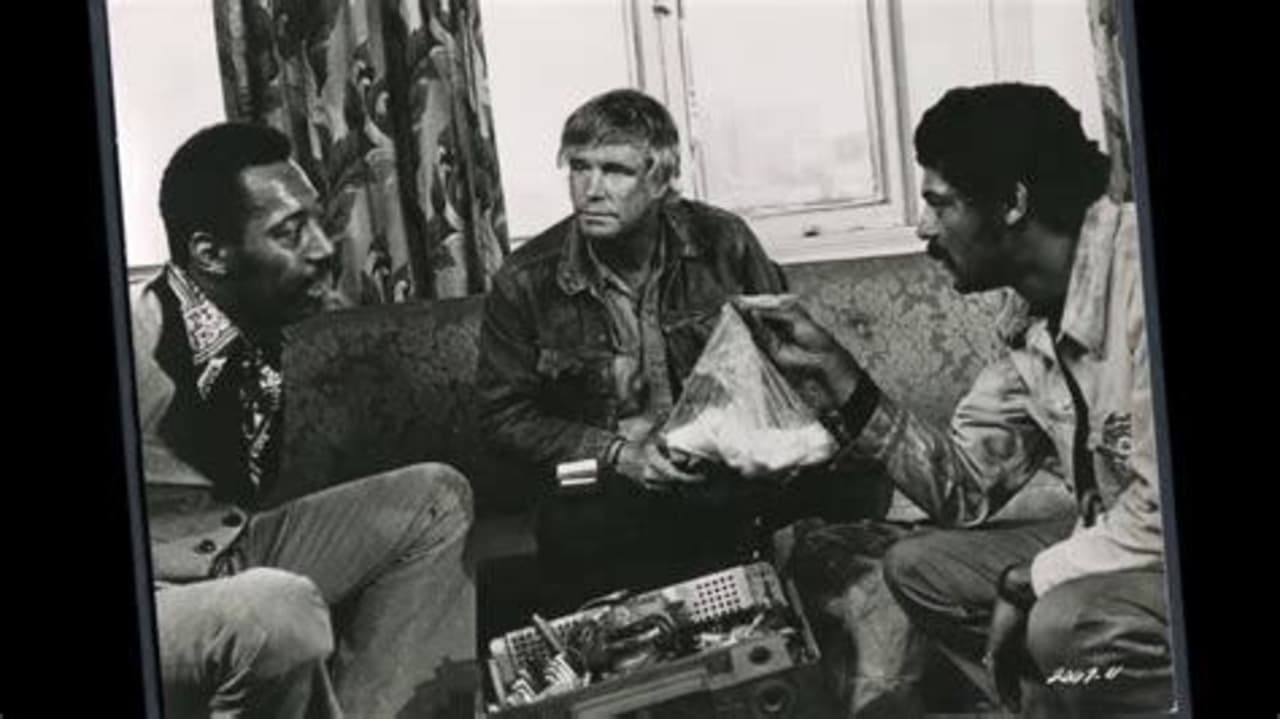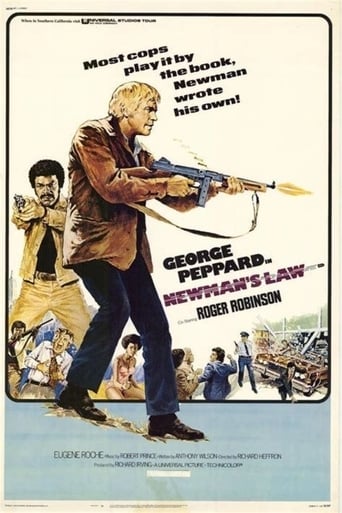



This Movie Can Only Be Described With One Word.
Let's be realistic.
Close shines in drama with strong language, adult themes.
View MoreThe film may be flawed, but its message is not.
"Newman's Law" is George Peppard's rendering of "Dirty Harry." Peppard plays a straightforward, blue-collar, undercover sergeant who polishes his shoes, puts on his spectacles when reading is required, and checks up on his father in a nursing home. He is as saintly a cop as you can imagine, and he is dealing with not only a ruthless mafia chieftain and his own department. Like most 1970s police procedural, you have a corrupt cop on the take concealed somewhere in the action. "Newman's Law" provides us with two dirty cops. The first one emerges early on after our heroes make a major narcotics bust, while the second one remains dormant during the finale. Vincent Newman (George Peppard of "Operation Crossbow") and his African-American LAPD partner Garry (Roger Robinson of "Willie Dynamite") get lucky and make a major bust. They knock over some trashcans so that the objects wind up in the street. Interpreting this as a crime that requires investigating, the two enter the building and find a fortune hidden in the floor. One of the guys that comes out catches a bullet when he tries to flee the scene of the crime. Newman wounds him in the leg, but somebody uses blunt force trauma and kicks him. Newman is brought up on charges after the Internal Affairs Division finds a bag of narcotics in his small, modest apartment. A three-time loser and full-time liar points the finger at Newman, but our hero doesn't serve any time. Contrived, predictable, and grim right down to the end, "Newman's Law" doesn't contain any car chases or major stunts. Director Richard Heffron and "Banacek" scenarist Anthony Wilson have created a serviceable but flat-footed thriller with a bad ending. Not only does Vincent's partner go down leaving a wife and son to fend for themselves, Vincent check out himself after a shoot-out, but he takes down the villains. Peppard delivers his usual clench-jawed performance and incorporates interesting little touches to his character. The sprained ankle during an introductory foot chase is an example. "Newman's Law" is nothing outstanding either as a police potboiler or a Peppard movie.
View MoreA nearly blind rental, the George Peppard vehicle "Newman's Law" impressed me more than I'd have imagined. It's a solid cop flick from the great days of cop flicks, and takes place in Los Angeles. Interestingly, the downbeat approach to it made me think San Francisco, yet without the trolleys and hills. This is a testament to the workmanship of the film- it's not about the glitz of LA, it's about the hard life of an 15+ year veteran detective on the job, still plugging away though getting old.The most difficult part of the film is that there is a vibe of television drama to it that try as it might, it cannot shake free of. This is the first film directed by Richard T. Heffron, who also directed the well known Peppard show "Banacek". Something about the seriousness of the characters, even though a good effort was put forward to flesh out their personages, smacks of period cop show. Not to insinuate that period cop shows were particularly bad, just think that this film has a little bit more "Kojak" than it does "CHiPs".The cast for this film was excellent. Peppard is not to be outdone, as Newman he's merely reserved and serious, a man of principles who will not tolerate graft or corruption. He is not a racist nor is he the ham-fisted violent cop so popular in film following "The French Connection." Roger Robinson, a black actor who is admittedly new to me, is excellent as his loyal partner Garry, who we see developed far beyond the basic black/white buddy-film aesthetic. Garry has a child and a wife(the stately Marlene Clark) and a life that is shown to contrast with that of Newman. Newman is the loner and Garry has it more together. Eugene Roche is a superior of the police, Abe Vigoda plays an accurate mafioso, Victor Campos is a great new recruit flatfoot, and actor/jazz saxophonist Mel Stewart is a crime boss. As you can see, many TV actors abound in this production.It's got a good, darker-than-usual tone to it, similar to the excellent "Busting" of the same time period. Dimly-lit scenes and Peppard's excellent styles (he wears some very slick jackets in this) give "Newman's Law" some real power. One of the better, lesser-known cop flicks of the early 70s.
View More